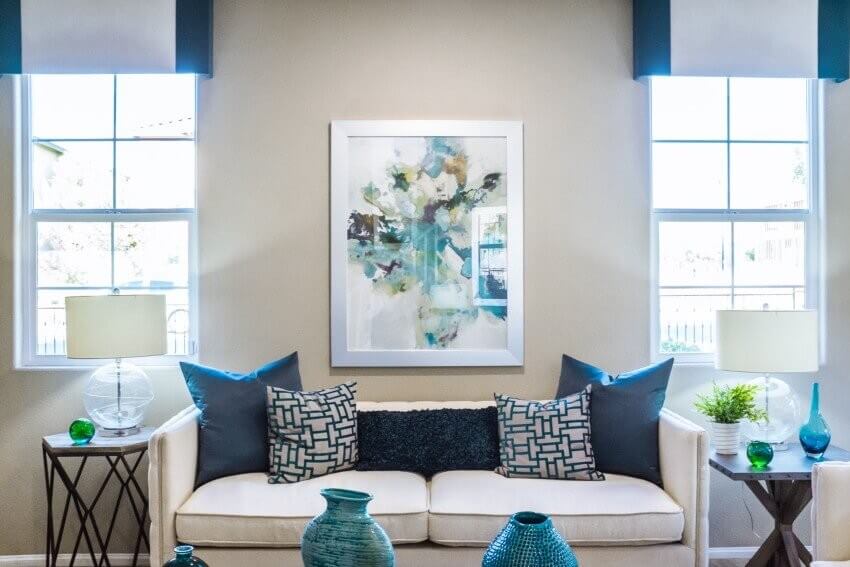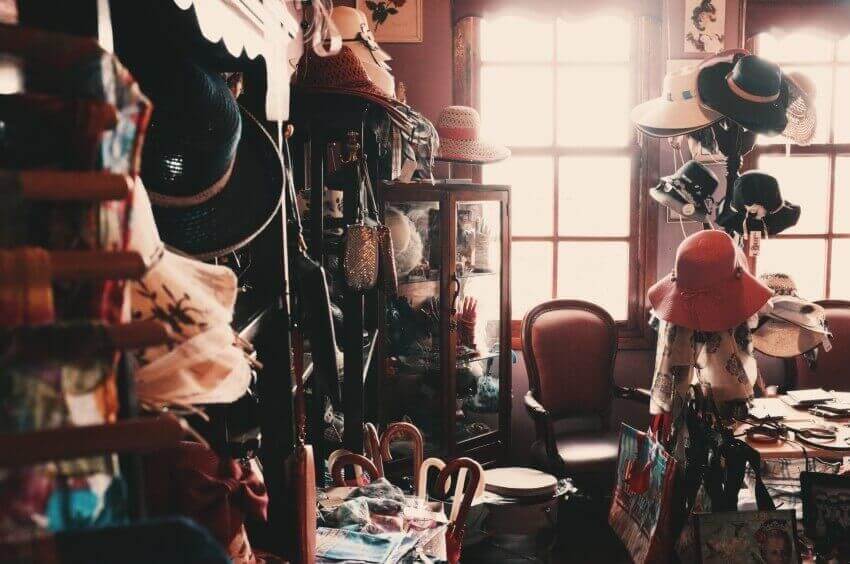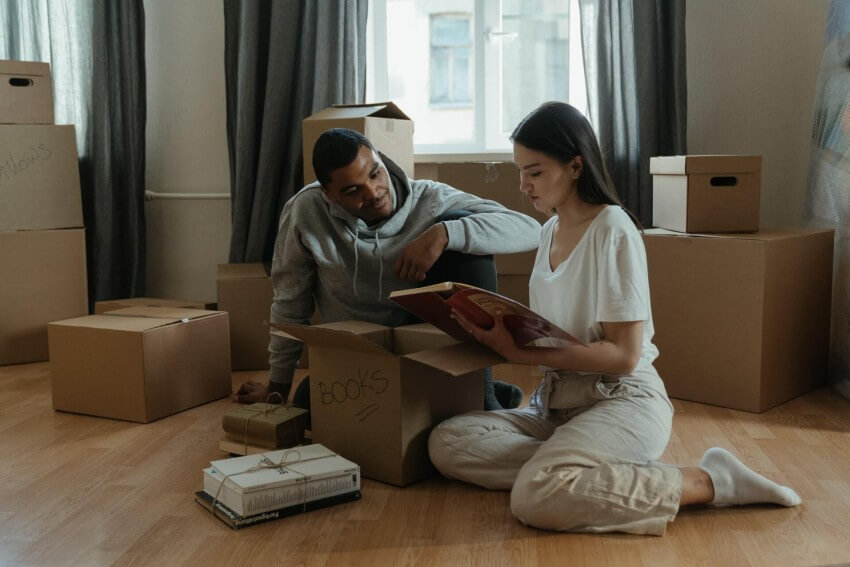
Declutter for Well-being
Tidying up, a new trend?
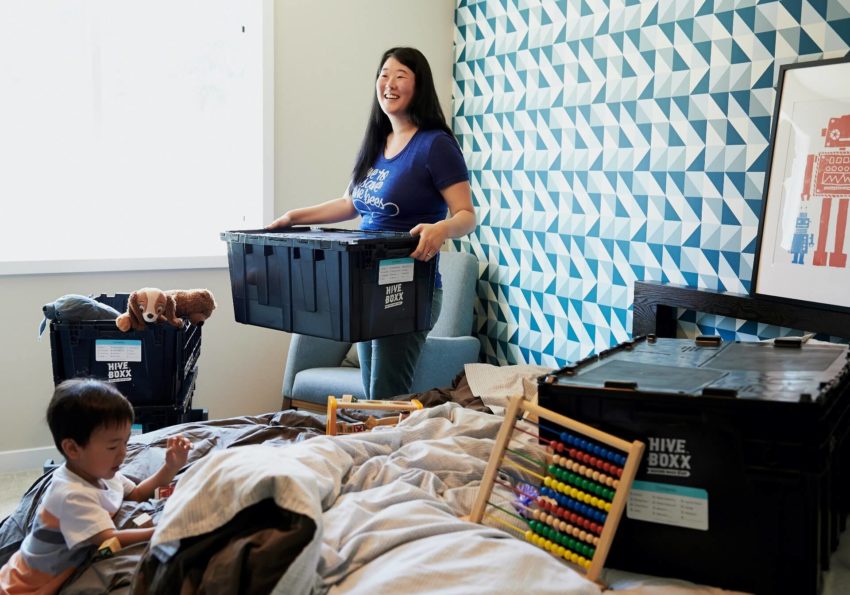
Why storage makes you feel good?
An orderly environment guarantees serenity and harmony when you come inside. With a clearer field of vision, you are able to project yourself better, all the while seeing afresh what surrounds you.
A healthy and tidy home stimulates your energy, creativity and good mood, reduces stress, improves your sleep and productivity, and releases endorphins, those well-known happiness inducing hormones.
The sorting out stage is essential for asking yourself about the objects which surround you. Take advantage of it to get rid of objects associated with bad memories or which are damaged or broken. It is an opportunity to keep only those objects that bring joy and good humour.
Clutter and its perverse effects

Without you even realising it, disorder around you will trigger a downward spiral, because clutter becomes a burden.
- You feel tired and demotivated when faced with the amount of energy you need to tidy up
- You are stuck in the past with old or useless objects
- You waste time looking for your things
- You feel depressed about the clutter surrounding you
- You are ashamed to invite your friends and family to your home and you withdraw into yourself
- You spend more because you buy twice or even three times as much as you need
- You feel deflated
- You can’t find documents and you feel overwhelmed by the situation
- Your senses are saturated by the excess of stimuli around you
Managing your daily life and living space becomes very complicated.
Why we don’t like tidying up?
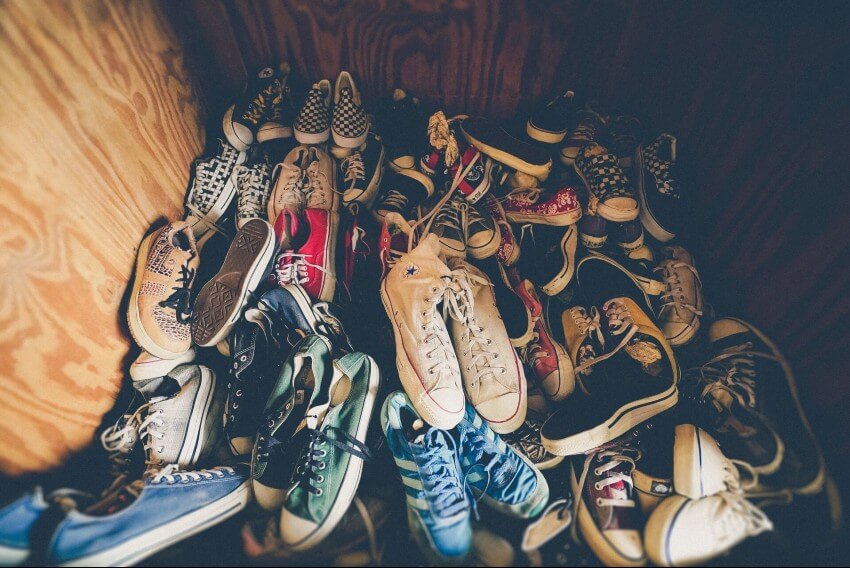
However, it is not always easy for everyone to prioritise storage. In addition to being exhausting, sorting and de-cluttering is sometimes a blockage.
Some people fear the feeling of emptiness left behind, others are afraid to throw things away in case they regret it later, preferring to clutter up their home. Because in the end, decluttering is a way of letting go, letting go of something that is no longer useful in your life.
This step, even if it is difficult, is nevertheless essential to free up your home and at the same time, your spirit. Eliminating clutter and disorder allows you to regain a clear, airy space and a life of harmony.
The different types of clutter

It is easy to be overwhelmed by the chaos of everyday life. It could stem from simple objects that are not in order, or a surplus of possessions or the accumulation of clothes that one no longer wears or craft work that has been started but never finished.
According to a study by the removals company “Movinga“, Switzerland holds a sad record: the population wears only 12% of the clothes in its wardrobe. The rest of the clothes remain piled up and simply forgotten at the back of the wardrobe.
Yes, we have all experienced the famous “I’ll keep it just in case”, or the famous “What if I need it? “or the “you never know” and the “I’m saving it for when I’ve lost weight”.
Overflowing cupboards, a room that’s a bit of a dumping ground, kitchen utensils when you don’t know where to put them, an entrance hall overflowing with coats and shoes, piles of letters that are never opened and disorder reigns supreme.
Tidy up your home to tidy up your life

Decluttering means sorting out and throwing things away and knowing how to get rid of things that are no longer useful. Take the time to declutter your interior, empty your cupboards, clear your entrance, find a place for every trinket and archive your administrative documents. This will put your life back in order. Everything around you will be clean and tidy. This opens up a whole new range of possibilities, making space for new ideas and desires.
Marie Kondo, the goddess of storage, uses this phrase as the slogan for her bestseller: “Life begins when you declutter”. After decluttering your house, you immediately feel better, less anxious, calmer and with a high level of self-confidence. Suddenly things become possible, achievable. Your mind is set to finally focus on new things.
And you can go further, you can even argue that tidying up your home and taking care of your interior is ultimately a gesture of love towards your home, but above all towards yourself.
The different storage methods

We all have our own way of decluttering. Frédéric Dard, for his part, liked to say that “The dustbin is the best storage accessory“.
Choose your own way to tidy up: by colour, by category, by alphabetical order, or even by empty space. There are some tried and tested methods that will help you see things more clearly. The shelves of bookshops offer a multitude of books to help you along the way.
- Marie Kondo and “La Magie du Rangement” (The Magic of Storage)
The KonMari method has been all the rage in recent years and has millions of followers around the world. It relies on storage as a tool for personal development. Living in a tidy house influences all other aspects of one’s life. According to her advice, you only keep those things that are important to you, that make you happy and that are really valuable to you. In the end, it’s all about choosing the things you want to be surrounded by. This method recommends decluttering once and for all, and above all, not indulging in daily tidying up. You need to sort it out thoroughly so that the mess doesn’t come back. She even recommends taking a few days off, just for this task. Empty all your cupboards and take an inventory of your clothes. Hold each item in your hands to make sure it really brings you joy. Learn how to fold your clothes to save space and create a more orderly impression. And lastly, don’t forget to thank each and every object you get rid of. It’s a way to detach yourself from the sentimental value you have had for them.
- The Fly Lady method
In contrast to the previous one, the method established by Marla Cilley is based on minimising household tasks. And to do this, she advises establishing daily routines to reduce the time spent on the laborious and annoying task of housework. A little bit every day, to avoid the heavy cleaning. For example, she advises wiping one’s sink after each use to prevent limescale from setting and then having to clean it thoroughly.
- The 5S method
This Japanese method is based on 5 actions, 5 Japanese action verbs beginning with S.
” Seiri “: to get rid of the superfluous, to sort out.
“Seiton “: to tidy up, to find a place for everything, to make it easier to use.
“Seiso ” : to clean. One of the key points of this method.
“Seiketsu“: keeping order so as not to be overwhelmed again.
” Shitsuke ” : be rigorous and respect the order of the preceding points.
A few tips for a tidy interior the whole time
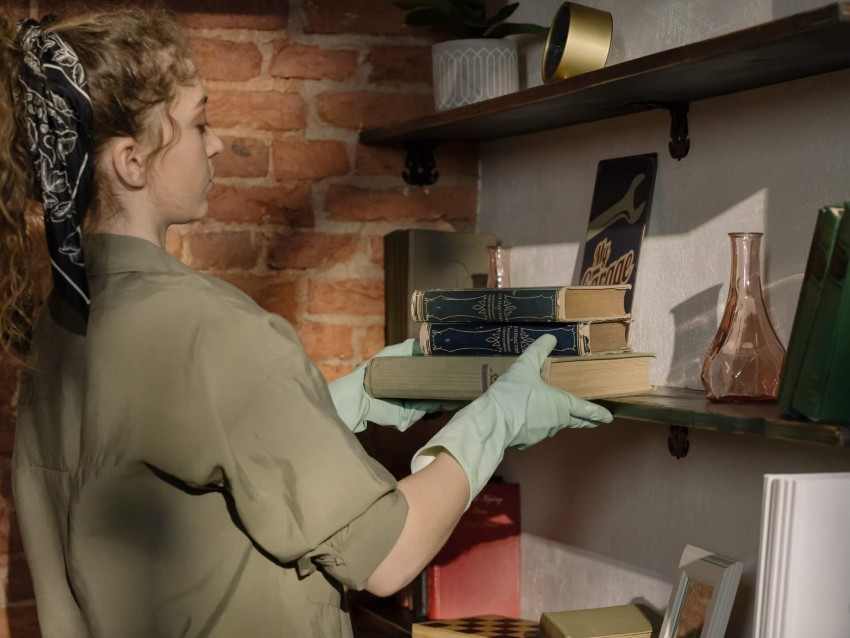
The most effective thing is to set a routine to tidy up a little every day, without being overwhelmed by the mess. Integrate these simple actions into your daily routine to see your interior transformed and your life become calmer.
- Every morning devote 15 minutes to tidying up around the house. This can range from tidying loose clothes to tidying messy pillows. You may find this time is better spent in the evening so that you wake up in a well-ordered house with a clear mind.
- Plan one hour of cleaning per week
- Make time in your schedule for shopping, laundry and administrative tasks, which are often forgotten.
What if decluttering changes our consumption habits?
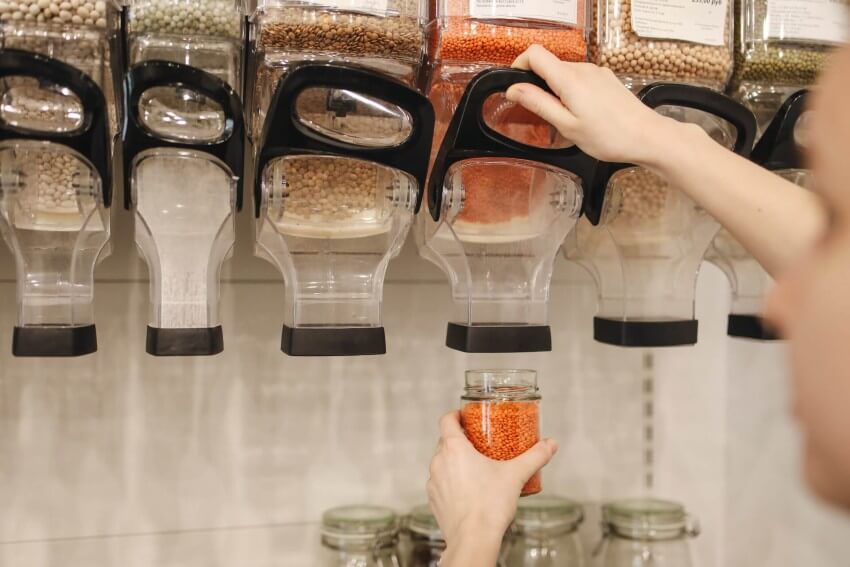
Tidying is an opportunity to rethink our habits, our way of consuming and buying. Faced with this excess of waste, rubbish and useless objects, more and more of us want to review our way of consuming and tend towards to minimalism, zero waste, recycling, sharing economy and second-hand goods. The 21st century sees is seeing the end of hyper consumption and the return to more thoughtful consumption. “Less is better“…
Your Team
Photo: Canva, Unsplash, Pexels
You may be interwsted in these posts

How do you deal with an accident or illness when on holiday abroad?
An accident or illness in the middle of your holiday can quickly become a real headache for both your organisation and your budget. Between the cost of medical care, the language barrier and the lack of reference points, travellers who have not taken out international health insurance before going on holiday abroad are often at […]

10 questions to ask yourself before choosing health insurance for expatriates
Take the time to fully understand the terms and conditions of your health insurance before taking out your policy, to make sure you make the best choice for your needs and budget. 1 – Is it possible to benefit from 24/7 emergency medical assistance? Having 24/7 emergency medical assistance can be a source […]

